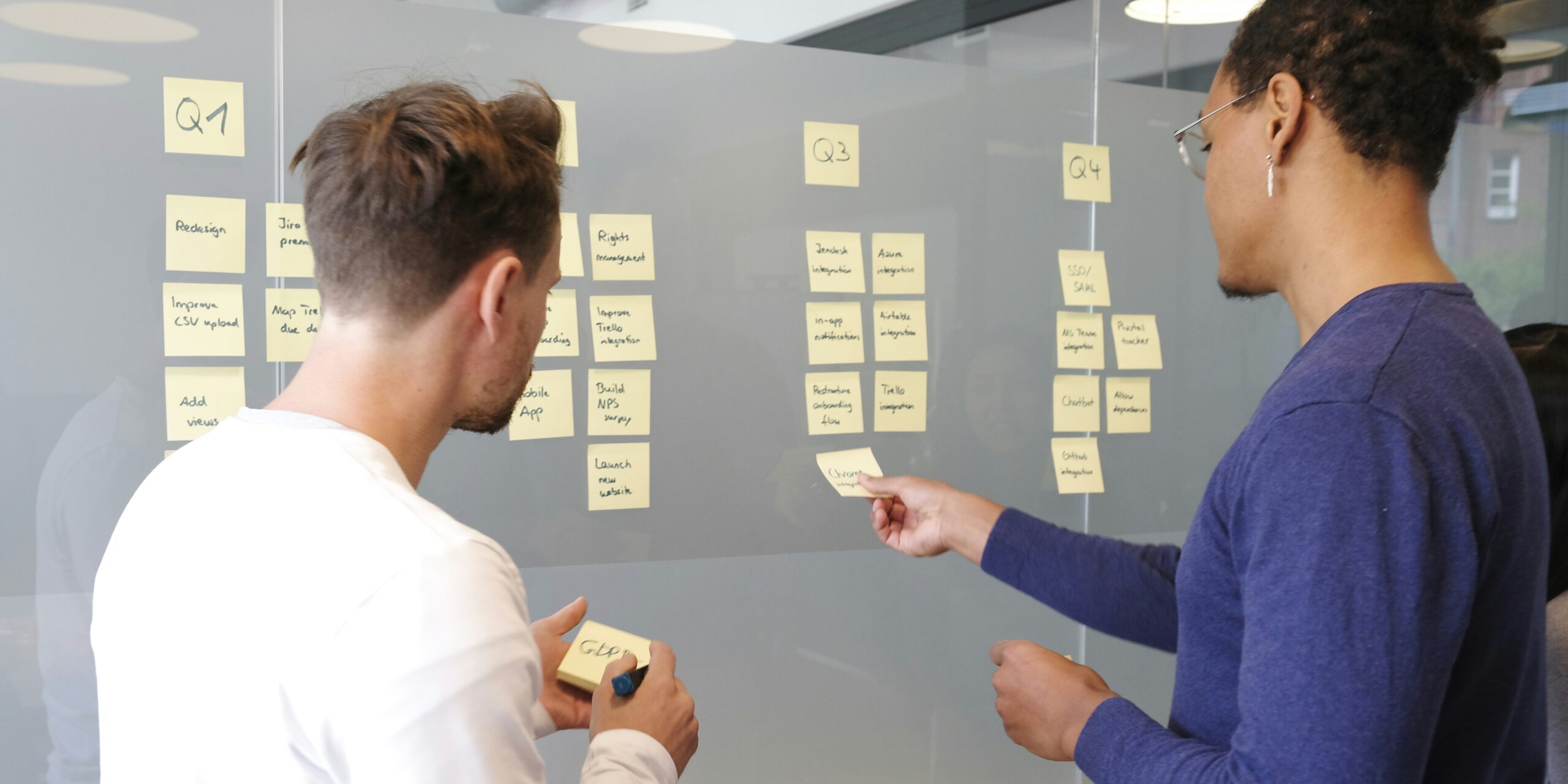Are you a hiring manager in search of a skilled and experienced team building trainer in Vancouver? Look no further! Finding the right contractor for your company’s training needs can be a daunting task, but with the right guidance, you can make a confident decision that will have a lasting impact on your team’s dynamics and productivity. In this article, we will explore the key qualities to look for in a team building trainer and how they can help your organization thrive. Whether you’re aiming to improve communication, foster collaboration, or enhance problem-solving skills, our comprehensive guide will equip you with the knowledge you need to find the perfect team building trainer in Vancouver.
What to Look for in a Team Building Trainer
When it comes to team building, finding the right trainer is crucial for the success of your training program. The right trainer can make all the difference in improving communication, fostering collaboration, and enhancing problem-solving skills within your team. As a hiring manager with learning and development responsibilities, it’s important to know what to look for in a team building trainer in Vancouver. Here are a few key factors to consider:
1. Relevant Experience: Look for a trainer who has experience specifically in team building. They should have a track record of successfully facilitating team building activities and workshops. (Source: Training Industry Report)
2. Expertise in Your Industry: Consider a trainer who has experience working with teams in your industry. They will have a better understanding of the unique challenges and dynamics that exist within your organization. (Source: Harvard Business Review)
3. Customization: Seek a trainer who is willing to customize their approach to meet your team’s specific needs. Every team is different, so a one-size-fits-all approach may not be effective. The trainer should be able to tailor their activities and exercises to address the specific goals and challenges of your team.
4. Strong Facilitation Skills: The trainer should have excellent facilitation skills to effectively guide the team through the activities and discussions. They should be able to create a safe and inclusive environment where team members feel comfortable to participate and share their ideas.
5. Proven Results: Look for a trainer who can provide testimonials or case studies of their past work. They should have success stories to share, demonstrating the positive impact their training had on teams they have worked with. (Source: Learnexus Success Stories)
6. Good Chemistry: Chemistry between the trainer and your team is essential for a successful training program. Look for a trainer who is able to connect with your team members and establish rapport. This will help create an engaging and positive learning environment.
Remember, finding the right team building trainer is crucial for the success of your training program. Take the time to research and interview potential trainers to ensure they have the necessary qualifications, experience, and approach that align with your team’s needs. By investing in the right trainer, you can enhance your team’s dynamics and productivity.
The Impact of Team Building on Organizations
Team building has become an essential component of organizational development as companies recognize the immense value it brings to their teams. Through effective team building activities and programs, companies can improve communication, foster collaboration, and enhance problem-solving skills among their employees. Let’s explore the impact that team building can have on organizations.
Improved Communication: Effective communication is the cornerstone of any successful team. Team building activities create opportunities for team members to interact in a relaxed and informal setting, fostering open lines of communication. By engaging in activities that require active listening and effective verbal and non-verbal communication, team members develop stronger communication skills that can be applied in their day-to-day work interactions.
Enhanced Collaboration: Collaboration is crucial for driving innovation and achieving organizational goals. Team building exercises often involve problem-solving activities that require team members to work together. These activities challenge individuals to think collectively, leveraging each other’s strengths to find solutions. By encouraging collaboration, team building initiatives help teams function more cohesively and efficiently.
Increased Productivity: Team building activities promote a positive and motivating work environment, which directly impacts productivity. When employees feel connected and supported by their teammates, they are more likely to be engaged and committed to their work. By fostering a sense of camaraderie and cohesion, team building improves overall employee satisfaction and ultimately increases productivity.
Stronger Relationships: Building strong relationships among team members is crucial for creating a harmonious and supportive work environment. Team building exercises allow individuals to get to know their colleagues on a personal level, fostering trust and empathy. As a result, team members develop stronger relationships, which can translate into improved collaboration and problem-solving abilities.
Boosted Morale and Employee Engagement: Team building activities inject fun, excitement, and variety into the work routine, creating a more engaging and enjoyable workplace. These activities also provide opportunities for celebrating achievements and recognizing individual and team contributions. By boosting morale and creating a positive work culture, team building efforts can improve employee satisfaction and retention.
Team building plays a vital role in enhancing the dynamics and productivity of organizations. By investing in team building activities and programs, companies can improve communication, foster collaboration, increase productivity, strengthen relationships, and boost employee engagement. The impact of team building on organizations cannot be overstated.
Effective Communication in Team Building
Effective communication is essential for successful team building. When team members can communicate openly and effectively, it fosters a positive and productive work environment. Here are a few key points to consider:
1. Clear Communication: In team building, clear communication ensures that everyone understands their roles and responsibilities. It helps in setting goals, sharing information, and coordinating efforts. Clear communication also reduces misunderstandings and promotes a sense of trust among team members.
2. Active Listening: Active listening is a crucial aspect of effective communication. Encouraging team members to listen actively to one another promotes understanding and empathy. Active listening involves paying attention, asking clarifying questions, and providing feedback, which enhances cooperation and collaboration within the team.
3. Non-Verbal Communication: Non-verbal communication, such as facial expressions, body language, and gestures, also plays a significant role in team building. It conveys emotions, intentions, and attitudes, even when words are not spoken. Being aware of non-verbal cues helps team members interpret messages accurately and build stronger connections.
4. Open and Transparent Communication: An environment of open and transparent communication is crucial for team building. When team members feel comfortable sharing their thoughts, ideas, and concerns openly, it encourages collaboration, problem-solving, and innovation. It also helps in resolving conflicts more effectively and maintaining healthy relationships within the team.
5. Technology and Communication Tools: In today’s digital age, technology plays a vital role in facilitating effective communication within teams. Utilizing communication tools such as project management software, instant messaging platforms, and video conferencing platforms allows team members to connect and collaborate seamlessly, regardless of their physical location.
By prioritizing effective communication in team building, organizations can reap numerous benefits, including improved collaboration, increased productivity, and enhanced employee engagement. It lays the foundation for a cohesive and high-performing team.
Learnexus is a valuable resource for hiring a team building trainer in Vancouver. On Learnexus, you can explore a diverse pool of experienced trainers who specialize in team building. Whether you are looking for customized training programs or packaged offerings, Learnexus provides a platform to connect with vetted contractors and vendors who can fulfill your company’s unique training needs.
Building Collaboration and Trust within Teams
Collaboration and trust are vital components of a successful team. When team members collaborate effectively and trust each other, they can achieve remarkable results and foster a positive working environment. As a hiring manager responsible for learning and development, it is imperative to find a team building trainer in Vancouver who can help build collaboration and trust within your teams.
Here are some key strategies to consider when building collaboration and trust within teams:
Foster Open Communication
Encourage team members to communicate openly and honestly. Create an environment where everyone feels comfortable expressing their ideas, concerns, and feedback. Effective communication helps teams share information, resolve conflicts, and build stronger relationships.
Encourage Active Listening
Active listening is crucial for building trust and understanding within teams. Encourage team members to actively listen to each other’s ideas, perspectives, and concerns. This fosters a sense of respect, empathy, and inclusivity, leading to stronger collaboration and trust.
Promote Non-Verbal Communication
Non-verbal communication plays a significant role in building trust and understanding within teams. Encourage team members to pay attention to non-verbal cues such as body language, facial expressions, and tone of voice. Building awareness of non-verbal communication helps prevent misunderstandings and promotes effective collaboration.
Embrace Transparency and Accountability
Promote a culture of transparency and accountability within your teams. Ensure that team members understand their roles, responsibilities, and expectations. This clarity fosters trust by demonstrating that everyone is working towards the same goals and is held accountable for their actions.
Utilize Technology and Communication Tools
In today’s digital age, technology and communication tools can greatly enhance collaboration and trust within teams. Implement collaboration and project management software that enables seamless communication, file sharing, and task tracking. This promotes real-time collaboration and helps teams stay organized and focused.
Building collaboration and trust within teams is a continuous process that requires effort and commitment. By prioritizing these strategies, you can create a positive and productive work environment where teams thrive.
Remember, when looking for a team building trainer in Vancouver, Learnexus is here to assist you. On Learnexus, you can find experienced trainers who specialize in team building and fostering collaboration and trust within teams. From packaged offerings to customized solutions, Learnexus connects you with vetted contractors and vendors tailored to your company’s unique training needs.
- Harvard Business Review: [The Neuroscience of Trust](https://hbr.org/2017/
Enhancing Problem-Solving Skills through Team Building
When it comes to effective team building, one of the key areas of focus is enhancing problem-solving skills within your team. In today’s fast-paced business environment, the ability to tackle challenges and find innovative solutions is crucial for success. By incorporating team building activities and strategies, you can foster a culture of collaboration and enhance problem-solving skills among your team members.
Why is problem-solving important in a team setting?
Problem-solving skills are vital in a team setting as they allow individuals to think critically, evaluate different perspectives, and come up with effective solutions. When team members are skilled in problem-solving, they can tackle complex issues, make data-driven decisions, and optimize business processes. Additionally, effective problem-solving enhances communication, boosts morale, and improves overall team performance.
How can team building enhance problem-solving skills?
Team building activities offer a unique opportunity to develop and enhance problem-solving skills in a collaborative environment. By engaging in hands-on problem-solving exercises, team members can improve their ability to think creatively, analyze information, and make decisions that benefit the entire team.
Here are a few ways in which team building can enhance problem-solving skills:
- Encouraging collaboration: Collaborative team building activities encourage team members to work together, exchange ideas, and find innovative solutions. Through these activities, individuals learn to leverage the collective intelligence of the team, leading to more effective problem-solving.
- Promoting communication: Effective problem-solving relies on open and clear communication. Team building exercises that focus on enhancing communication skills, such as collaborative games or group discussions, can help team members improve their ability to share ideas, actively listen, and work together to solve problems.
- Developing trust: Trust is a fundamental aspect of successful problem-solving within a team. Team building activities that foster trust, such as trust falls or team-building challenges, can help build stronger relationships among team members, leading to more effective problem-solving outcomes.
Conclusion
Enhancing problem-solving skills through team building is a valuable investment for any organization. By providing opportunities for collaboration, promoting communication, and developing trust within the team, you can create a culture of problem-solving excellence. Remember that effective problem-solving is an ongoing process that requires continuous effort and commitment from everyone involved.
Conclusion
Enhancing problem-solving skills through team building is a valuable investment for any organization. By fostering open communication, encouraging active listening, promoting non-verbal communication, embracing transparency and accountability, and utilizing technology and communication tools, teams can effectively collaborate and build trust. Team building activities play a crucial role in enhancing problem-solving skills within a team setting.
Problem-solving in a team environment offers numerous benefits, including increased creativity, diverse perspectives, and improved decision-making. Through collaboration, communication, and trust development, team building activities can enhance problem-solving skills and promote a more cohesive and productive team.
Remember, achieving effective problem-solving skills through team building requires continuous effort and commitment. By consistently implementing these strategies and prioritizing team building activities, organizations can create a positive and collaborative work environment that fosters innovation and success.
Invest in team building and watch your team thrive as they tackle challenges head-on, find creative solutions, and achieve their goals together.
Frequently Asked Questions
Q: Why is effective communication important in team building?
A: Effective communication is crucial in team building because it fosters collaboration and trust among team members. It ensures that team members understand each other’s ideas and expectations, leading to better problem-solving and decision-making.
Q: What strategies can be used to improve communication within teams?
A: Strategies to improve communication within teams include fostering open communication channels, encouraging active listening, promoting non-verbal communication, embracing transparency and accountability, and utilizing technology and communication tools.
Q: How can team building activities enhance problem-solving skills?
A: Team building activities enhance problem-solving skills by encouraging collaboration, promoting communication, and developing trust among team members. These activities provide opportunities for team members to work together, share ideas, and find solutions to challenges.
Q: Why is problem-solving important in a team setting?
A: Problem-solving is important in a team setting because it allows teams to overcome obstacles, think critically, and make effective decisions. It promotes innovation, enhances productivity, and strengthens teamwork.
Q: What is the key takeaway from the article?
A: The key takeaway from the article is that enhancing problem-solving skills through team building is a valuable investment for organizations. It requires continuous effort and commitment to foster effective communication, collaboration, and trust within teams.




